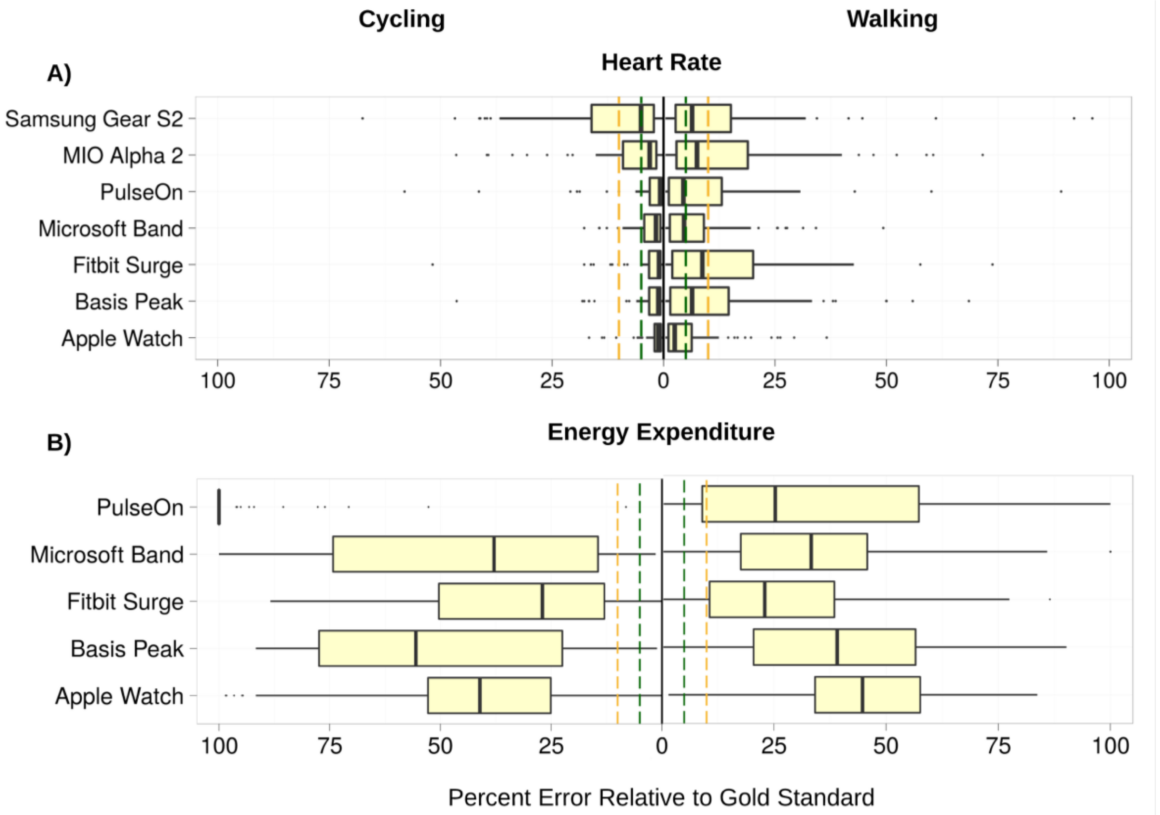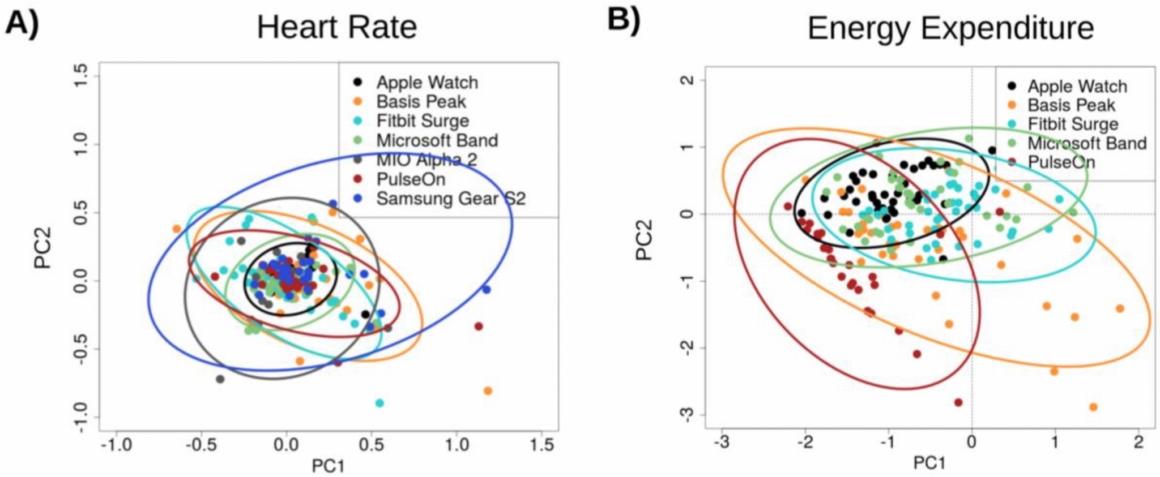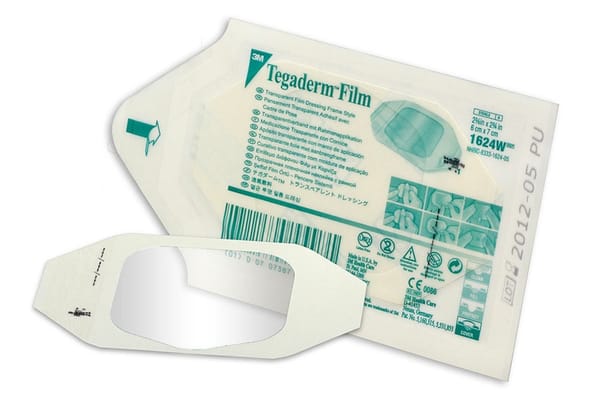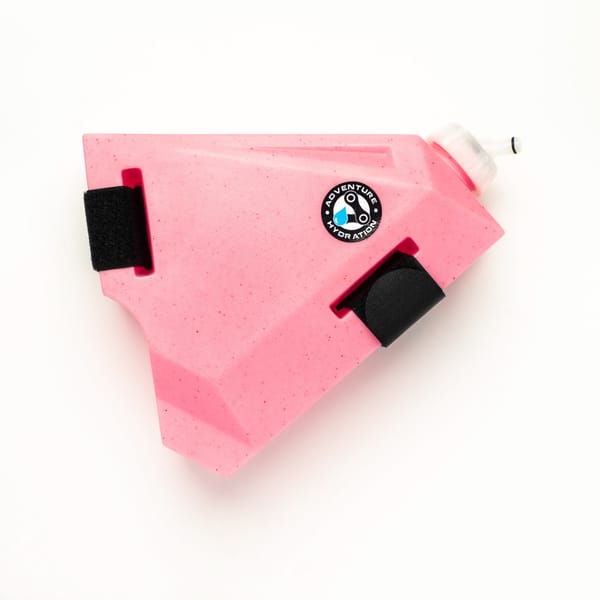Apple Watch Beats Out Other Fitness Trackers in Measuring Heart Rate
In a new study from Stanford University and the Swedish School of Sport and Health Services comparing the accuracy of seven different fitness trackers, the Apple Watch was found to have the lowest margin of error when measuring heart rate, besting the Basis Peak, Fitbit Surge, Microsoft Band, Mio Alpha 2, PulseOn, and Samsung Gear S2.
Researchers set out to compare the accuracy of wrist-worn fitness tracking devices at measuring both heart rate and energy expenditure. 60 volunteers (29 male and 31 female) participated in the study and they each wore several fitness trackers while completing activities like cycling, running, and walking.

Data collected by the fitness trackers was compared against electrocardiograph (ECG) for measuring heart rate and clinical grade indirect calorimetry (measures oxygen and carbon dioxide when breathing to determine calories burned).
The Apple Watch had the lowest median heart rate error at 2 percent (1.2% to 2.8%), while the Samsung Gear S2 had the highest error rate at 6.8 percent (4.6% to 9%).
When it came to measuring energy expenditure, no device managed to accurately determine how many calories were burned. Median error rates across all devices ranged from 27.4 percent (Fitbit Surge) to 92.6 (PulseOn).

Overall, most of the fitness trackers tested were able to measure heart rate within an acceptable error level, but calorie estimates were largely inaccurate.
There are three principal findings from the current study. In a diverse group of individuals: (1) most wrist-worn monitoring devices report HR with acceptable error under controlled laboratory conditions of walking, running and cycling; (2) no wrist-worn monitoring devices report EE within an acceptable error range under these conditions; (3) of the devices tested, the Apple Watch had the most favorable error profile while the Samsung Gear S2 had the least favorable error profile.





